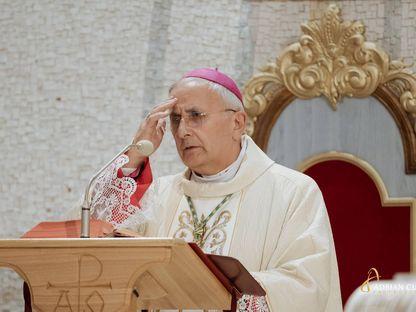F-16 fighter jets are approaching the military aircraft from both sides. They intercept the plane while sandwiching it between them. From the small round windows of the encircled plane, the missiles with which the jets are equipped under their wings are clearly visible.
On one tail unit emblazoned is the Turkish flag, on the other the Romanian national emblem.
NATO exercise in Borcea with F-16 jets – Romania in the geopolitical centre. But is the country ready to lead?
English Section
07/03/2024
This is roughly what the view from a Russian military plane approaching NATO airspace must be like. The moment an aircraft passes a certain trigger point without a transponder signal and without prior notice, the Alliance’s operations center sets off an alarm.
Within 15 minutes, jets from the Western defense alliance are ready to take off and identify the unknown object.
Sometimes those are commercial planes with a technical problem - and sometimes Russian army aircrafts.
The scene described at the beginning, however, was an exercise. The intercepted aircraft - a C-27J Spartan - belongs to the Romanian Air Force, with journalists on board en route from Bucharest to Borcea near Fetesti. This is where the Romanian base Baza Aeriană 86 is located, from where NATO monitors the airspace on its south-eastern flank.
Since the end of last year, Turkish fighter pilots have been supporting Enhanced Air Policing South, a mission that was introduced after the Russian annexation of Crimea in 2014 to maintain the integrity of NATO airspace.
De 8 ani, jurnalismul pe care îl practicăm este în primul rând în serviciul public al cititorilor. Așa că ne-am dori să vă cunoaștem mai bine, prin intermediul unui sondaj anonim, de maxim 5 minute. Îl puteți completa aici: sondaj PressOne.
One of the men who flew the F-16 jet is a pilot from Turkey. On his right arm, he wears a badge with the portrait of Atatürk, the founder of the Turkish state. His name is not to be published, but a star and laurel wreath on his shoulder indicate his rank: Major. He has been stationed in Romania for ten days. During this time, "we flew two real situations which we call scramble," he says. "Apart from that, we are flying training missions here with our allied friends."
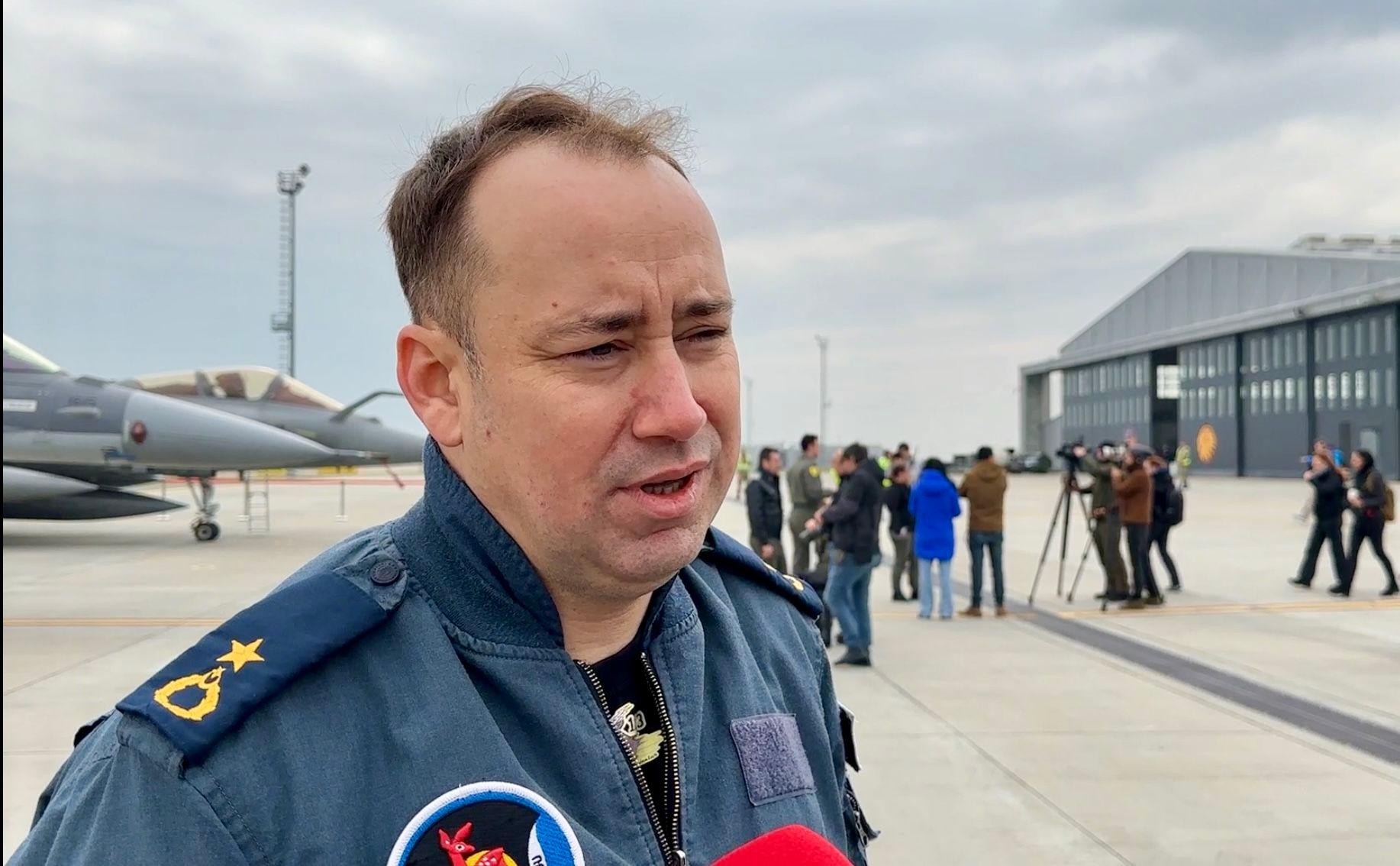
Turkish pilot, one of the two F-16 pilots who took part in the NATO exercise in Borcea. Photo: Carolina Drüten
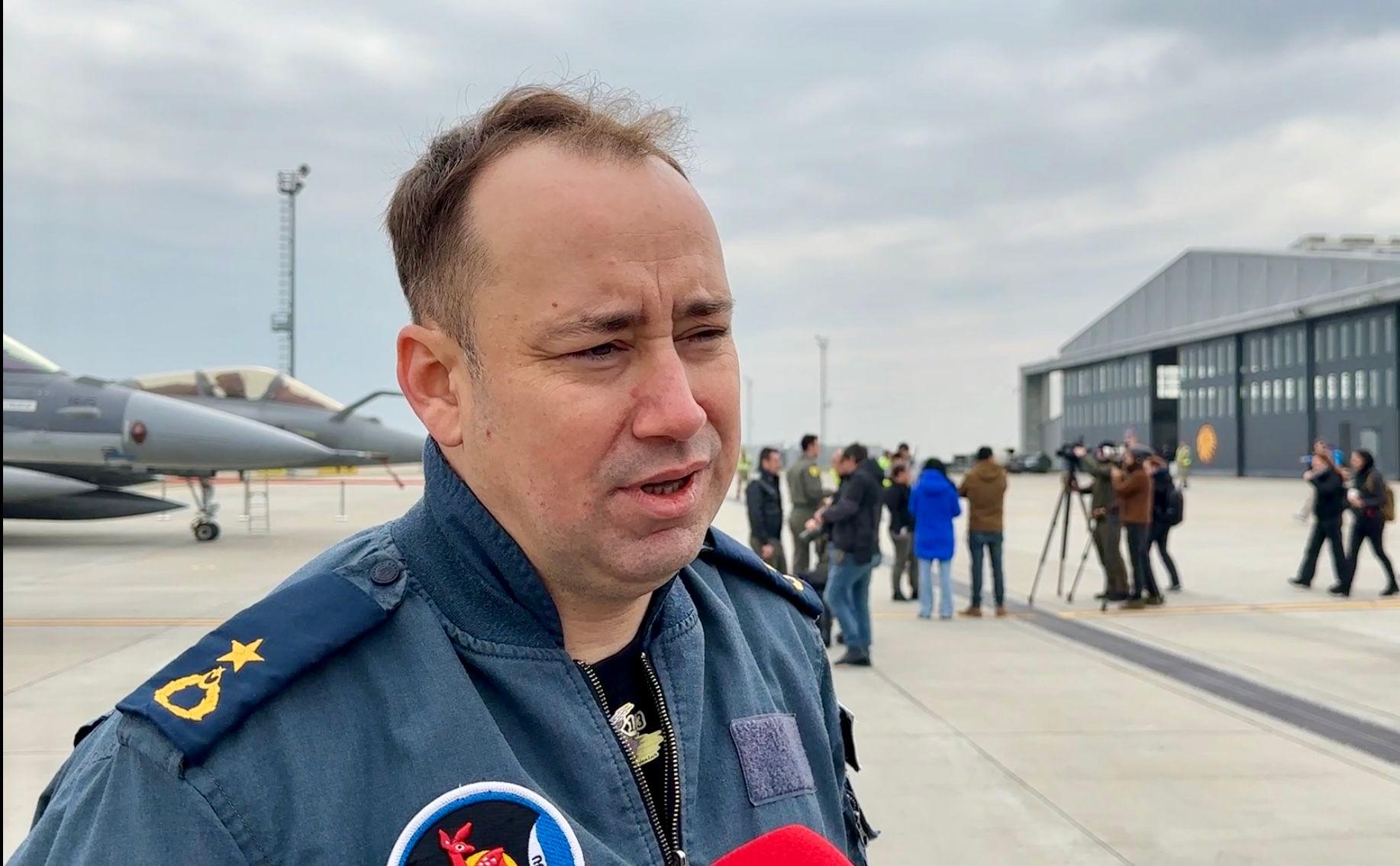
Turkish pilot, one of the two F-16 pilots who took part in the NATO exercise in Borcea. Photo: Carolina Drüten
In an emergency, there are various ways of approaching the target. "We may inspect it, we may intervene. Or, if it's an aircraft that's having trouble, we can help it to land safely at an airfield," says the Major.
Next to two F-16 fighter jets, a French Rafale jet is lined up. Three of them are currently at the base, they are visiting for five days to train together, but are not presently part of the NATO air surveillance mission.
Mulți ne citesc, puțini ne susțin. Fără ajutorul tău, nu putem continua să scriem astfel de articole. Cu doar 5 euro pe lună ne poți ajuta mai mult decât crezi și poți face diferența chiar acum!
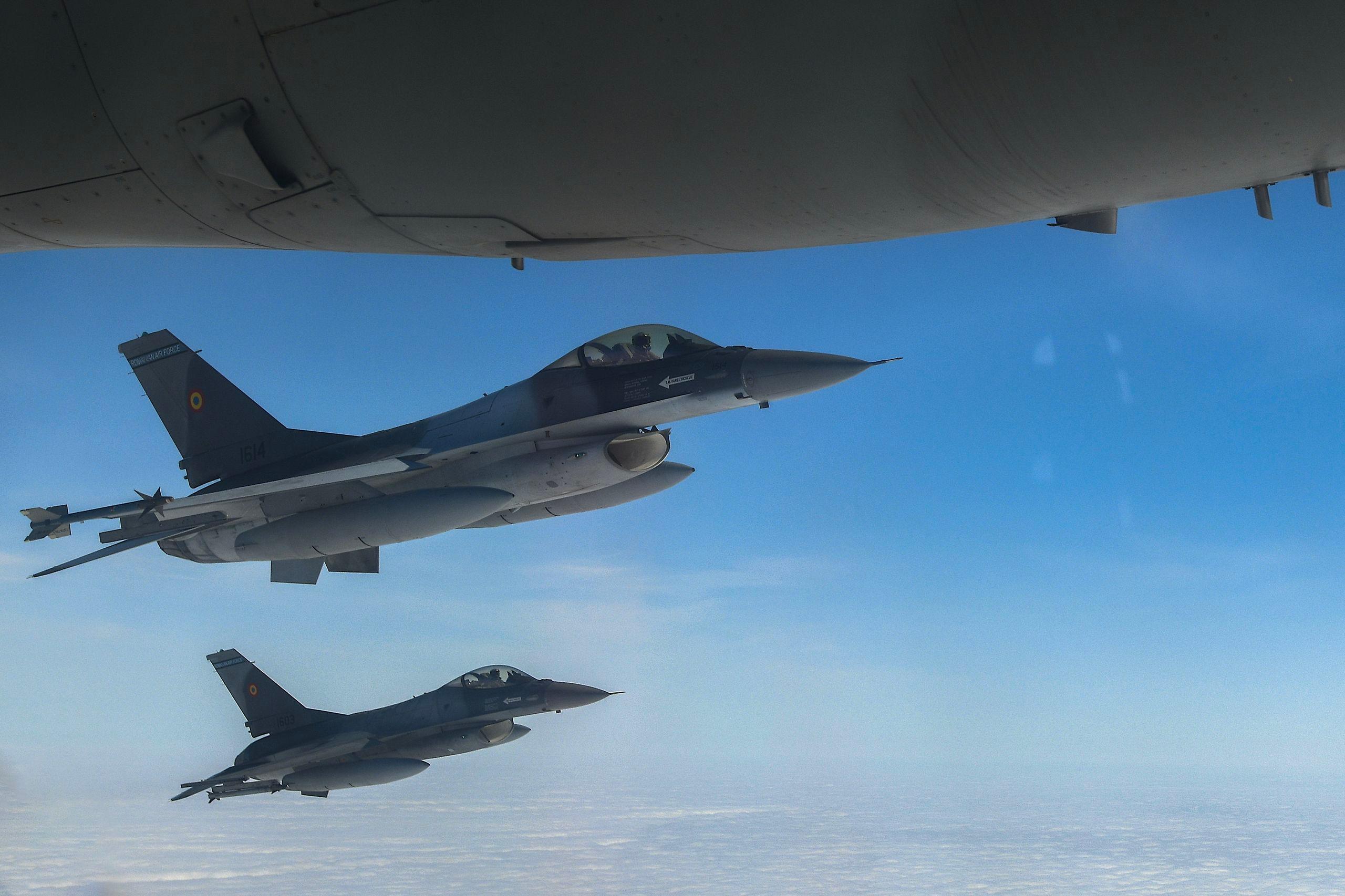
F-16 aircraft of the Romanian Air Force and the Turkish Air Force conduct a reinforced air policing demonstration exercise. Romanian and Turkish pilots apply NATO procedures. Wednesday, 6 March 2024. Inquam Photos / Eduard Vanatoru
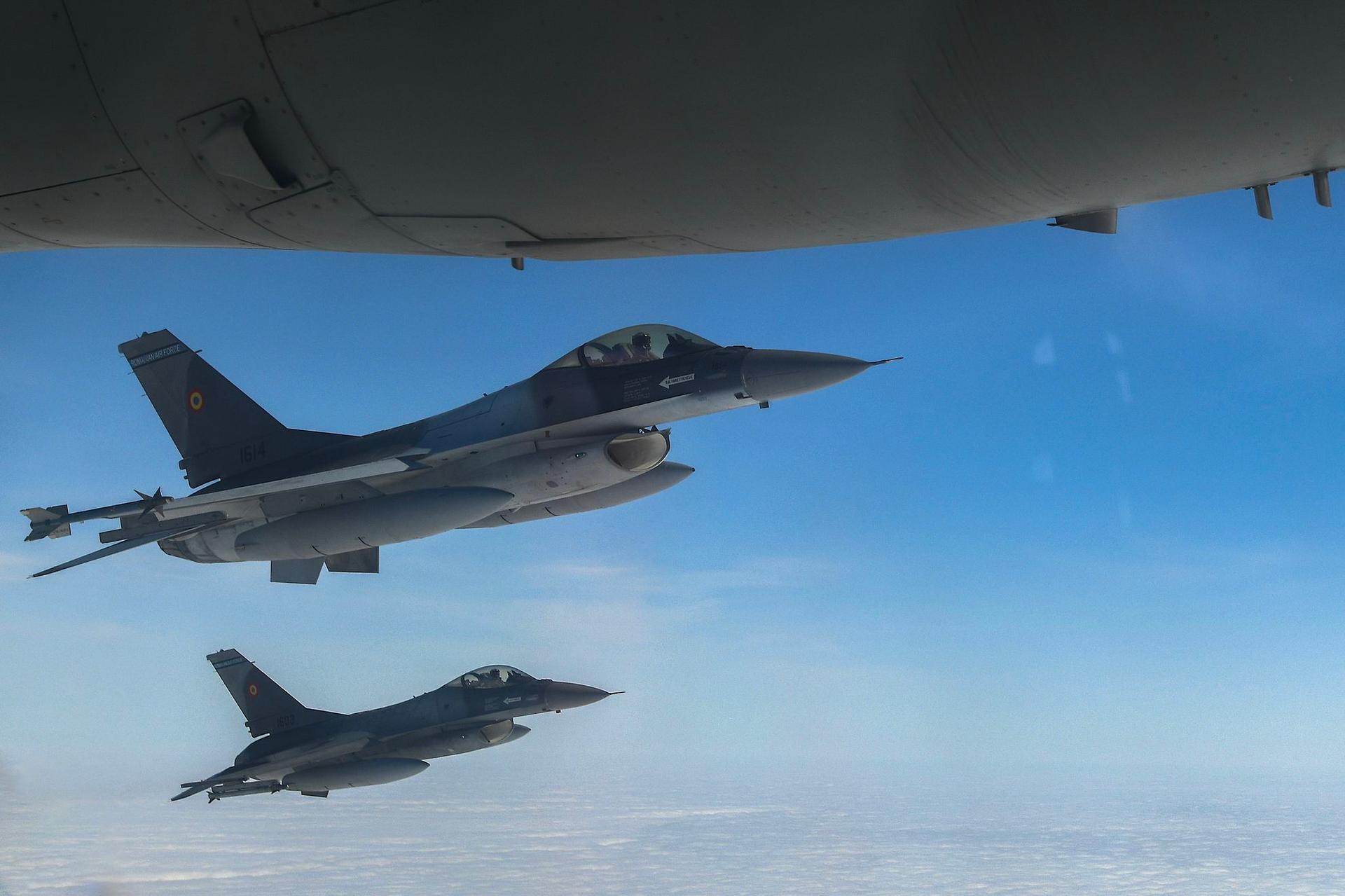
F-16 aircraft of the Romanian Air Force and the Turkish Air Force conduct a reinforced air policing demonstration exercise. Romanian and Turkish pilots apply NATO procedures. Wednesday, 6 March 2024. Inquam Photos / Eduard Vanatoru
A tall French pilot, who introduces himself with his nickname Max, explains that the nature of a mission depends on the location. "If it's international territory, anyone has the right to fly there, whether it's an aircraft from Russia or another nationality," he says. Half of his face is covered in black cloth. "We just carry out professional checks to ensure that our countries' borders are secure." The planes would then be escorted. "In the event of an intrusion into the airspace, we radio in, wait for orders," says Max, "and defend the border."
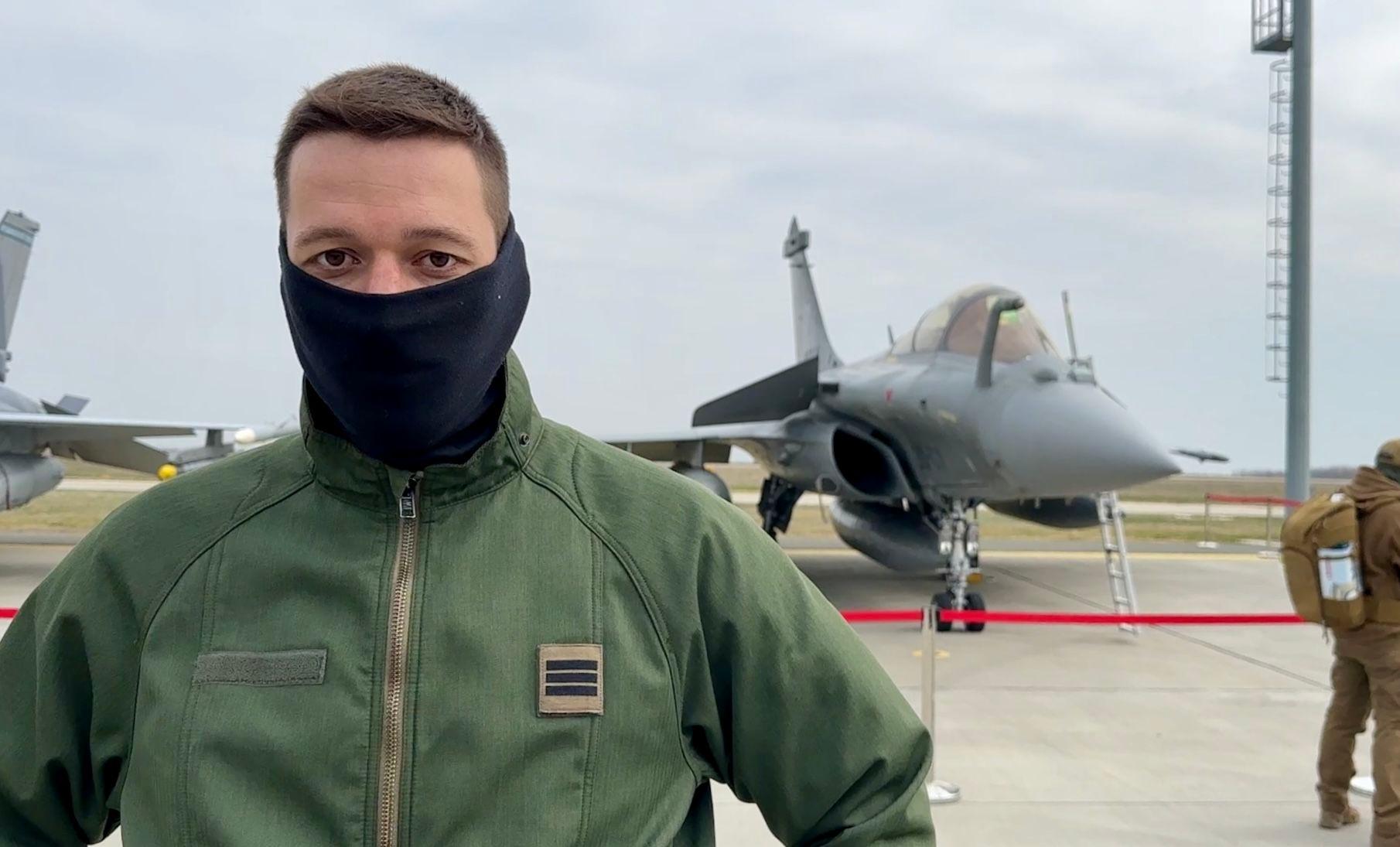
Max, French pilot, one of the two F-16 pilots who took part in the NATO exercise in Borcea. Photo: Carolina Drüten
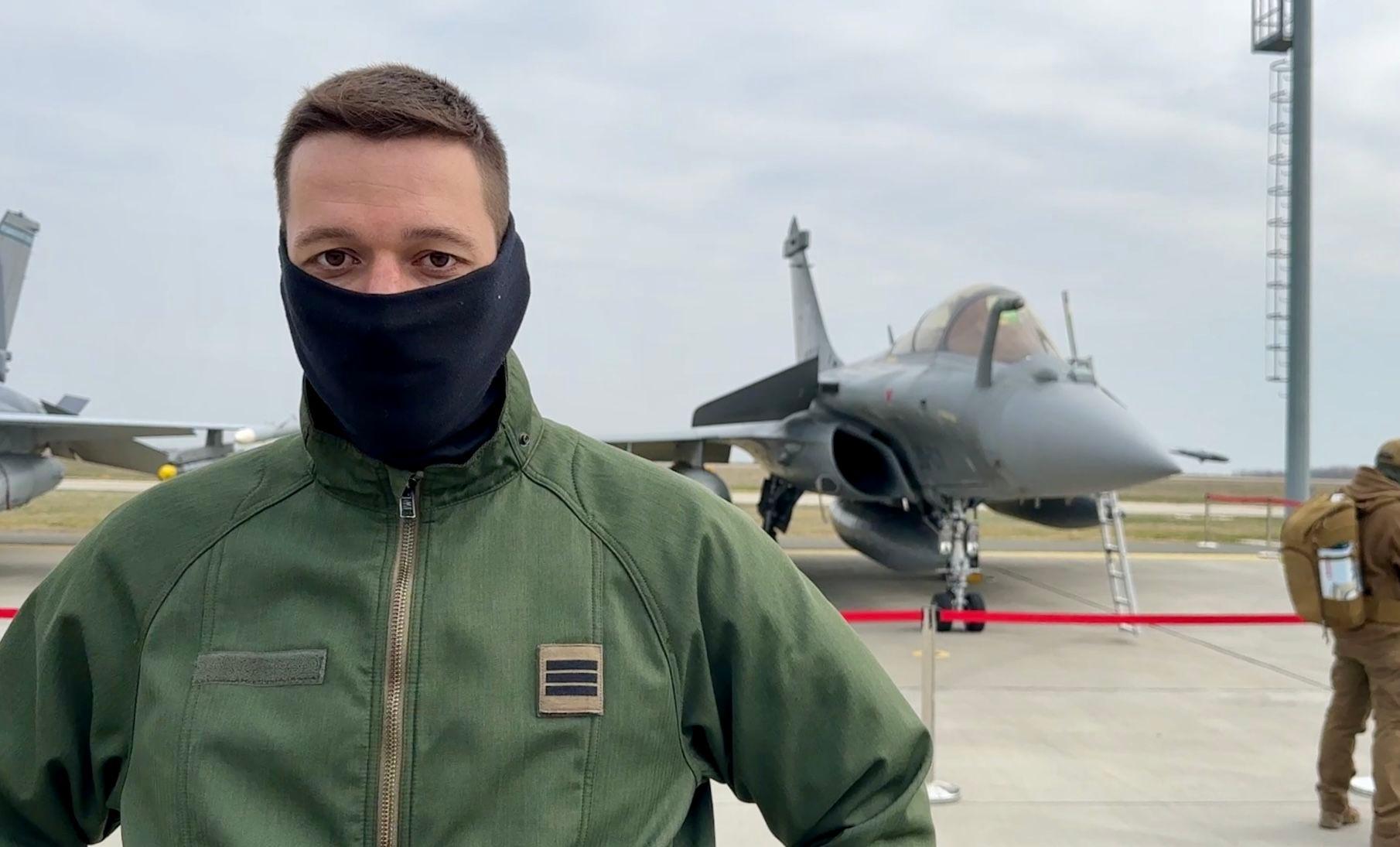
Max, French pilot, one of the two F-16 pilots who took part in the NATO exercise in Borcea. Photo: Carolina Drüten
Interactions with Russian aircraft usually take place in international airspace. It is less common for Kremlin planes to enter NATO territory. In December, however, German and Romanian jets were called to the scene because a Russian drone had violated Romanian airspace and crashed near the municipality of Grindu. But the Alliance did not consider this to be a deliberate attack.
Time and again, debris lands on Romanian soil. The country has the longest border with Ukraine of all NATO member states. While NATO had long concentrated on Poland and the Baltic states on its eastern flank, Romania became the focus of attention following the Russian attack on the whole of Ukraine in February 2022 - and the balance of power shifted.
Predator in Robes: The Diocese of Iași and the Vatican Buried a Sexual Assault Committed by a Catholic Priest Against a Minor in Bacău, Failing to Alert Prosecutors
A Roman Catholic priest abused a 13-year-old girl in the parish where he served in Bacău County: the bishop of Iași knew about it, sent the case to the Vatican, and applied canonical sanctions, but did not notify the authorities, who only intervened later and sentenced him to prison.
A multinational NATO battlegroup was quickly formed under French leadership and deployed in Romania. Its deputy commander, French General Loďc Girard, recently explained that it is set to grow into a brigade in spring 2025.
"A brigade of over 4,000 soldiers and several hundred armored vehicles will be deployed from France to Romania for a few weeks," he said. The soldiers would train in Romania and return to their home countries at the end of the exercise - minus the permanently stationed French battalion.
Un newsletter pentru cititori curioși și inteligenți.
Sunt curios
Does Romania know how to use its geostrategic position?
Armand Gosu, a renowned security expert and former advisor to the Romanian Foreign Ministry, confirms that Romania's strategic position has catapulted it into the center of Western geopolitics, especially with regard to the important Black Sea region.
The question is: will the political leadership succeed in deriving a regional leadership role from the strategic momentum, especially with the 2024 elections coming up?
Romania is of central importance for the transportation of military goods to Kiev, for example. Reports on leaked documents from the US Department of Defense state that it has played a similarly important role as Poland in supporting Ukraine.
Bucharest also supplies weapons itself, and, while it remains silent about the volume, Romtehnica, the Romanian Ministry of Defence owned weapons production company, is among the top Romanian exporters to Ukraine. In addition, Ukrainian pilots are to be trained on F-16s in Borcea in the future.
Gosu's verdict is not optimistic: "No, Romania is not ready. Neither politically, nor militarily, nor economically is Romania ready to assume a leading role in European and transatlantic security policy," he says.
The expert criticizes the crumbling infrastructure and the poor equipment of the army. In the event of a NATO operation on Romania's eastern border, "the transfer of military equipment from Germany to Dobruja would take five days, including four days to cross Romania from west to east," he says. "There is no motorway across the Carpathian Mountains in Romania and train speeds are slower than 100 years ago, reaching 30 km per hour on some legs of the journey."
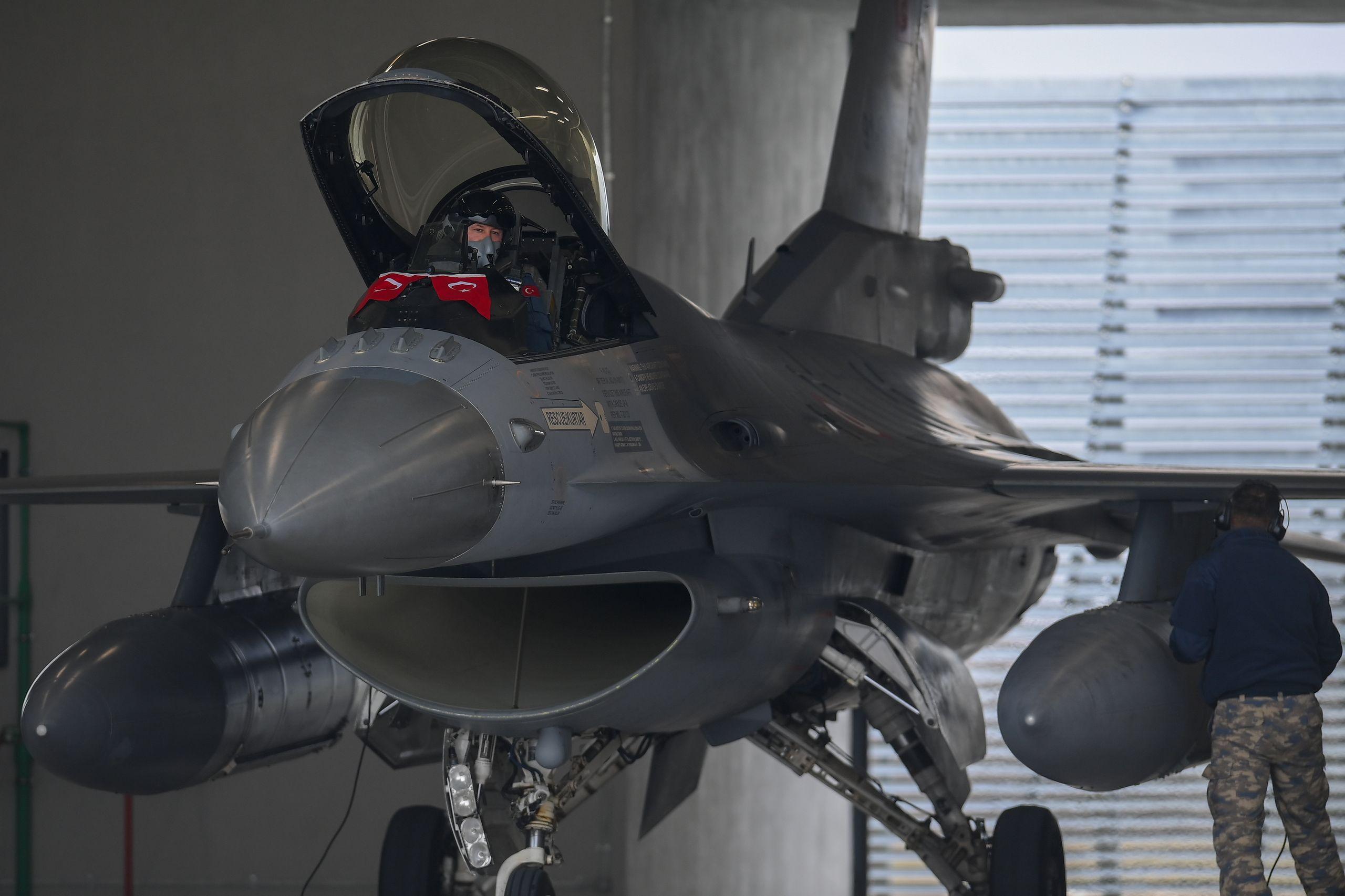
F-16 aircraft of the Romanian Air Force and the Turkish Air Force conduct a reinforced air policing demonstration exercise. Romanian and Turkish pilots apply NATO procedures. Wednesday, 6 March 2024. Inquam Photos / Eduard Vanatoru
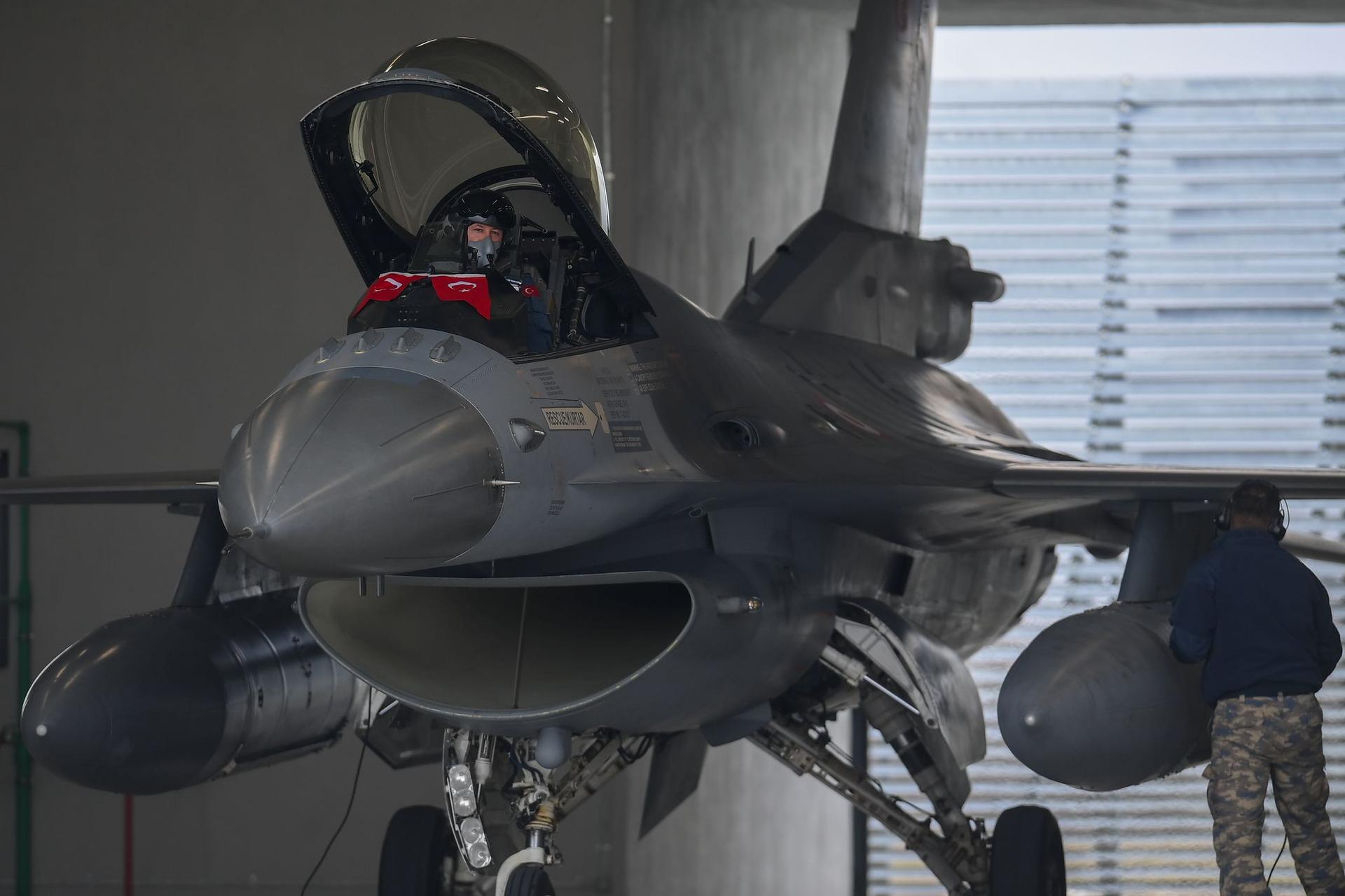
F-16 aircraft of the Romanian Air Force and the Turkish Air Force conduct a reinforced air policing demonstration exercise. Romanian and Turkish pilots apply NATO procedures. Wednesday, 6 March 2024. Inquam Photos / Eduard Vanatoru
Another major problem, he says, is the fact that the political elite is stifling any progress and the fight against corruption. Romania's justice, health and education systems and its ability to attract foreign capital are just as bad, according to Gosu.
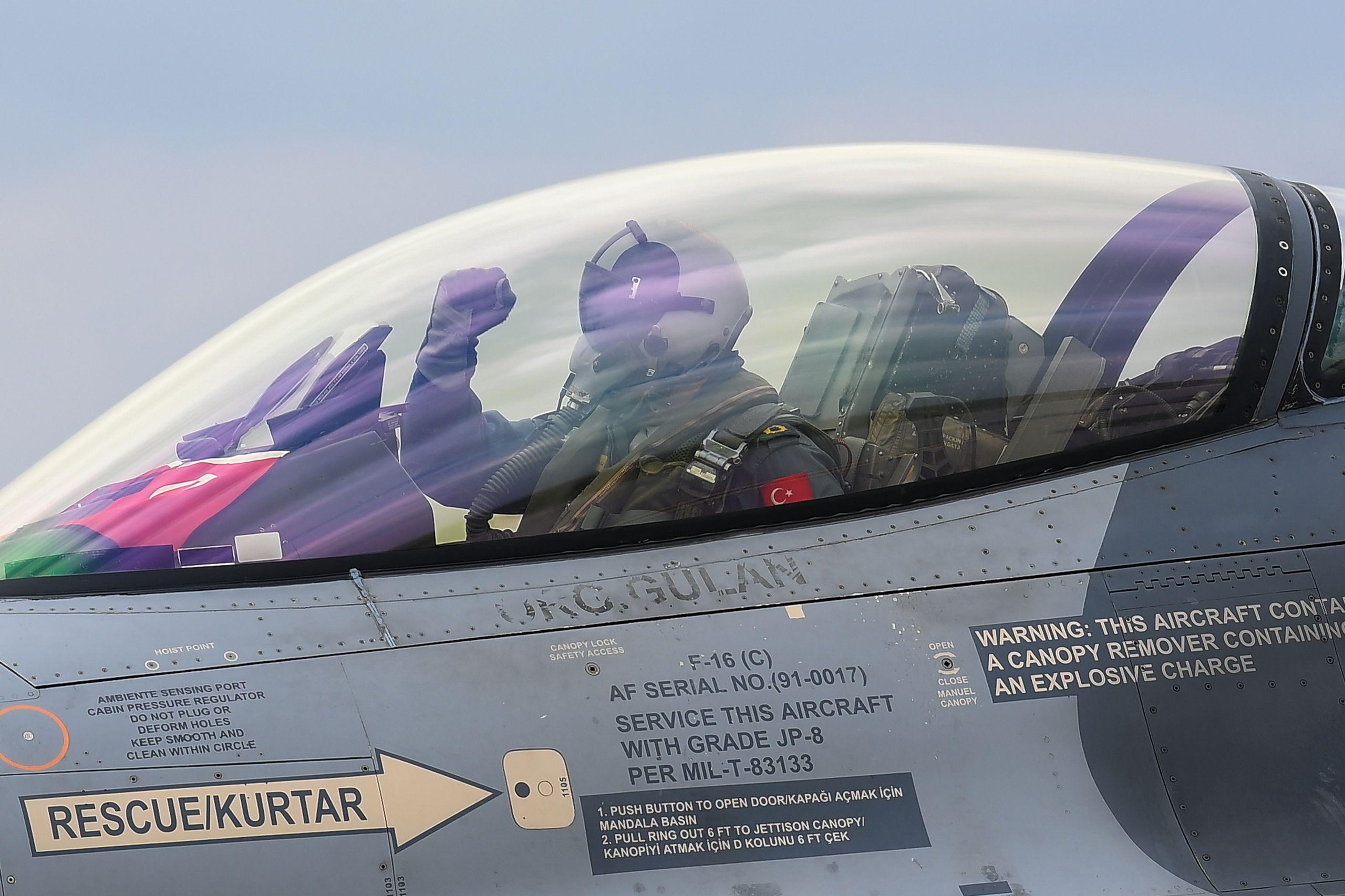
F-16 aircraft of the Romanian Air Force and the Turkish Air Force conduct a reinforced air policing demonstration exercise. Romanian and Turkish pilots apply NATO procedures. Wednesday, 6 March 2024. Inquam Photos / Eduard Vanatoru
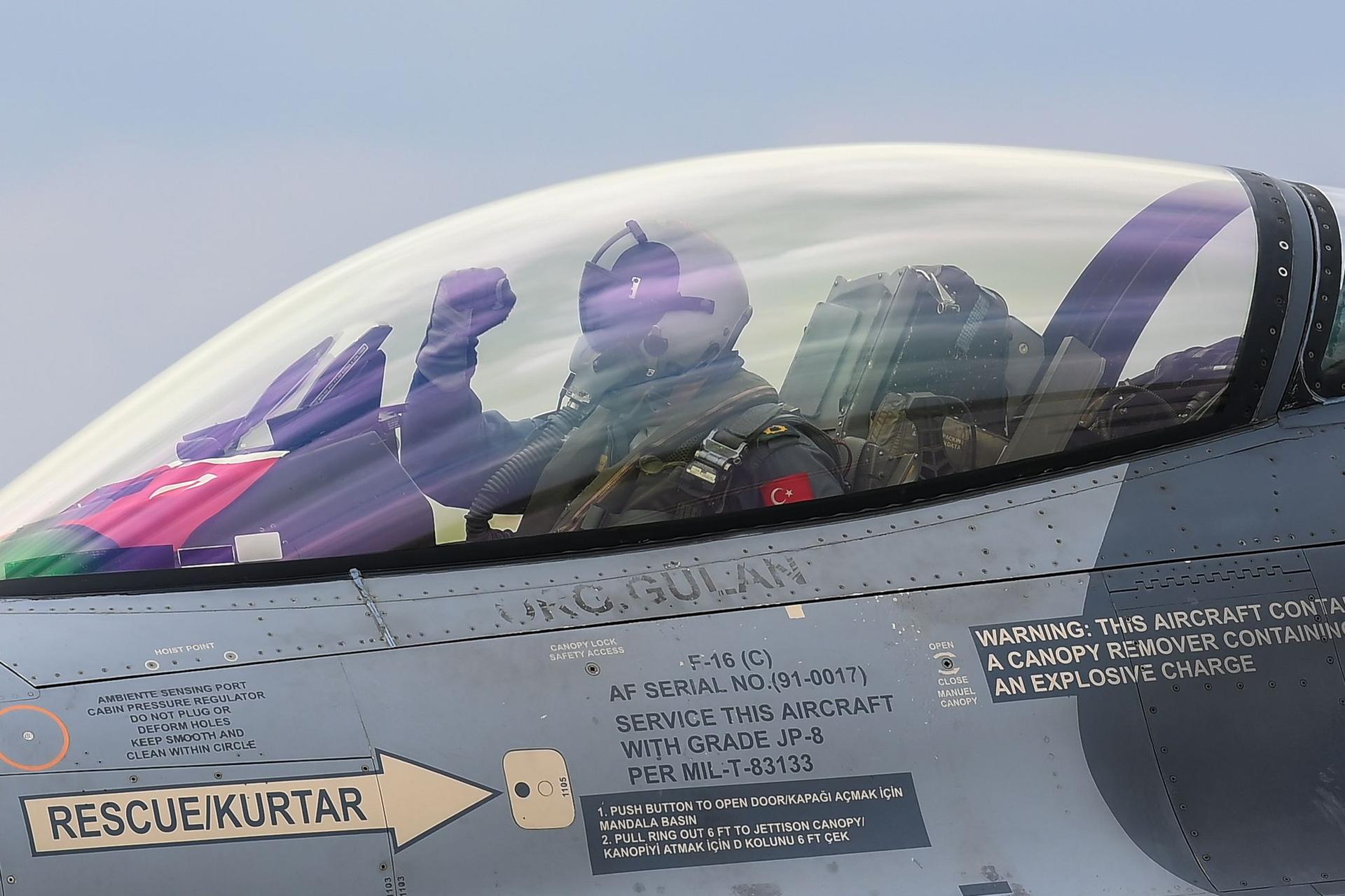
F-16 aircraft of the Romanian Air Force and the Turkish Air Force conduct a reinforced air policing demonstration exercise. Romanian and Turkish pilots apply NATO procedures. Wednesday, 6 March 2024. Inquam Photos / Eduard Vanatoru
"Instead, we have hundreds of generals with huge pensions who would rather see Romania leave the EU than give in to Brussels' demand to tax their pensions." He adds: "Under President Klaus Iohannis, Romania has visibly regressed," quoting also depopulation and loss of skilled workforce. Despite the geopolitical opportunities that have arisen for the country, he therefore concludes: "I don't have high hopes."
This text is part of a series of articles proposed by TEFI, a cross-border editorial project developed by some of the most powerful newsrooms in Central and Eastern Europe: Gazeta Wyborcza (Poland), Magyar Jeti / 444 (Hungary), SME (Slovakia), Bellingcat (Netherlands), PressOne (Romania), united in a European-funded consortium to promote national and regional security issues.
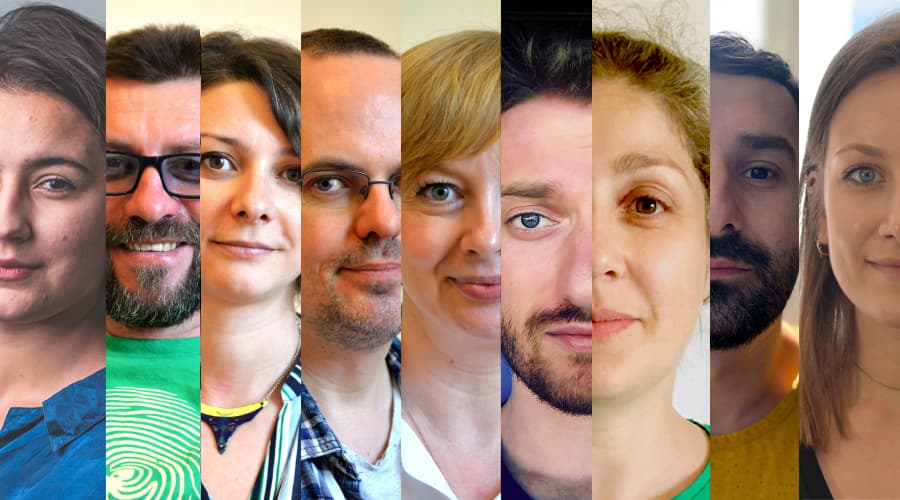
Avem nevoie de ajutorul tău!
Mulți ne citesc, puțini ne susțin. Asta e realitatea. Dar jurnalismul independent și de serviciu public nu se face cu aer, nici cu încurajări, și mai ales nici cu bani de la partide, politicieni sau industriile care creează dependență. Se face, în primul rând, cu bani de la cititori, adică de cei care sunt informați corect, cu mari eforturi, de puținii jurnaliști corecți care au mai rămas în România.
De aceea, este vital pentru noi să fim susținuți de cititorii noștri.
Dacă ne susții cu o sumă mică pe lună sau prin redirecționarea a 3.5% din impozitul tău pe venit, noi vom putea să-ți oferim în continuare jurnalism independent, onest, care merge în profunzime, să ne continuăm lupta contra corupției, plagiatelor, dezinformării, poluării, să facem reportaje imersive despre România reală și să scriem despre oamenii care o transformă în bine. Să dăm zgomotul la o parte și să-ți arătăm ce merită cu adevărat știut din ce se întâmplă în jur.
Ne poți ajuta chiar acum. Orice sumă contează, dar faptul că devii și rămâi abonat PressOne face toată diferența. Poți folosi direct caseta de mai jos sau accesa pagina Susține pentru alte modalități în care ne poți sprijini.
Vrei să ne ajuți? Orice sumă contează.
Share this

